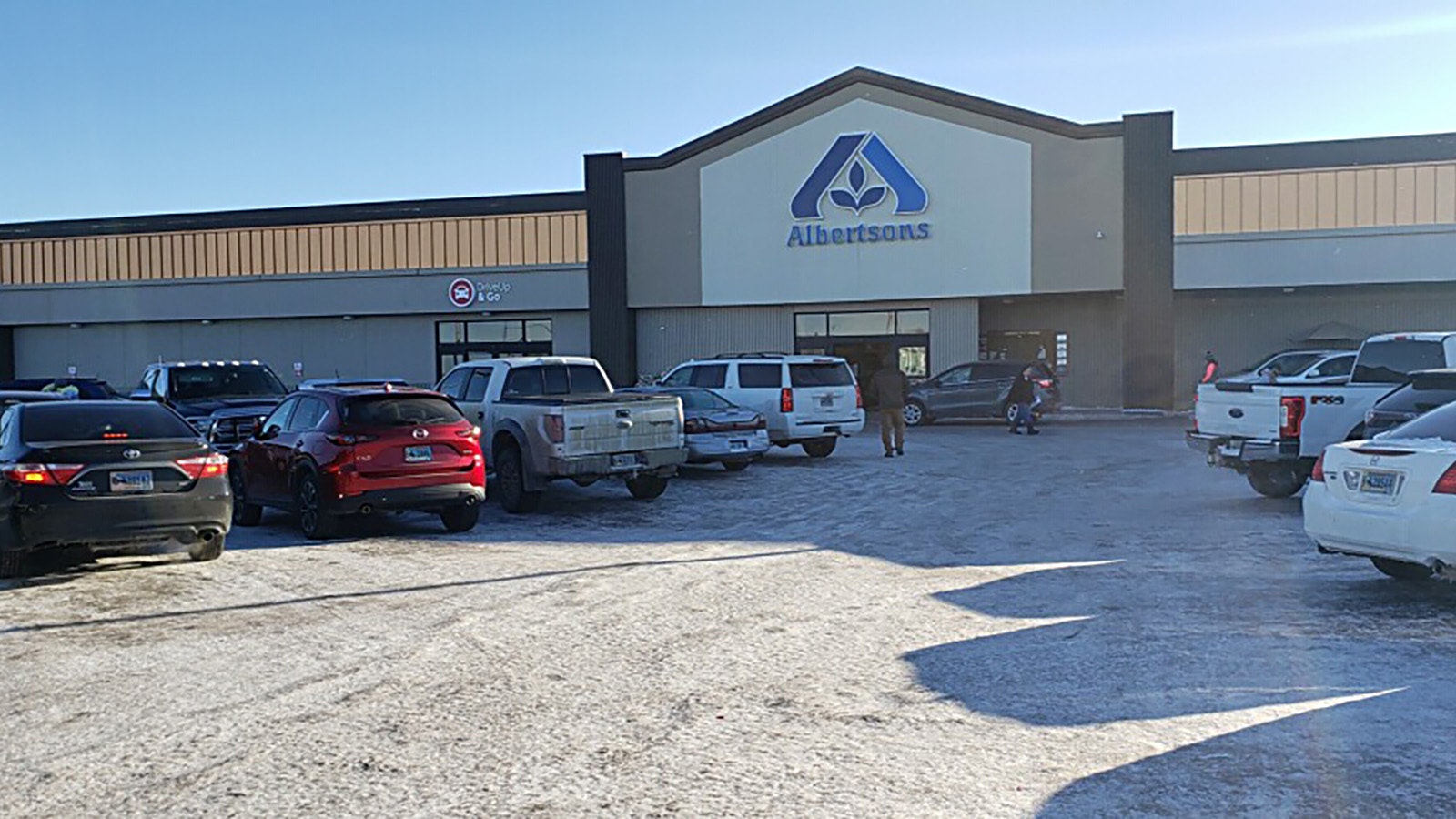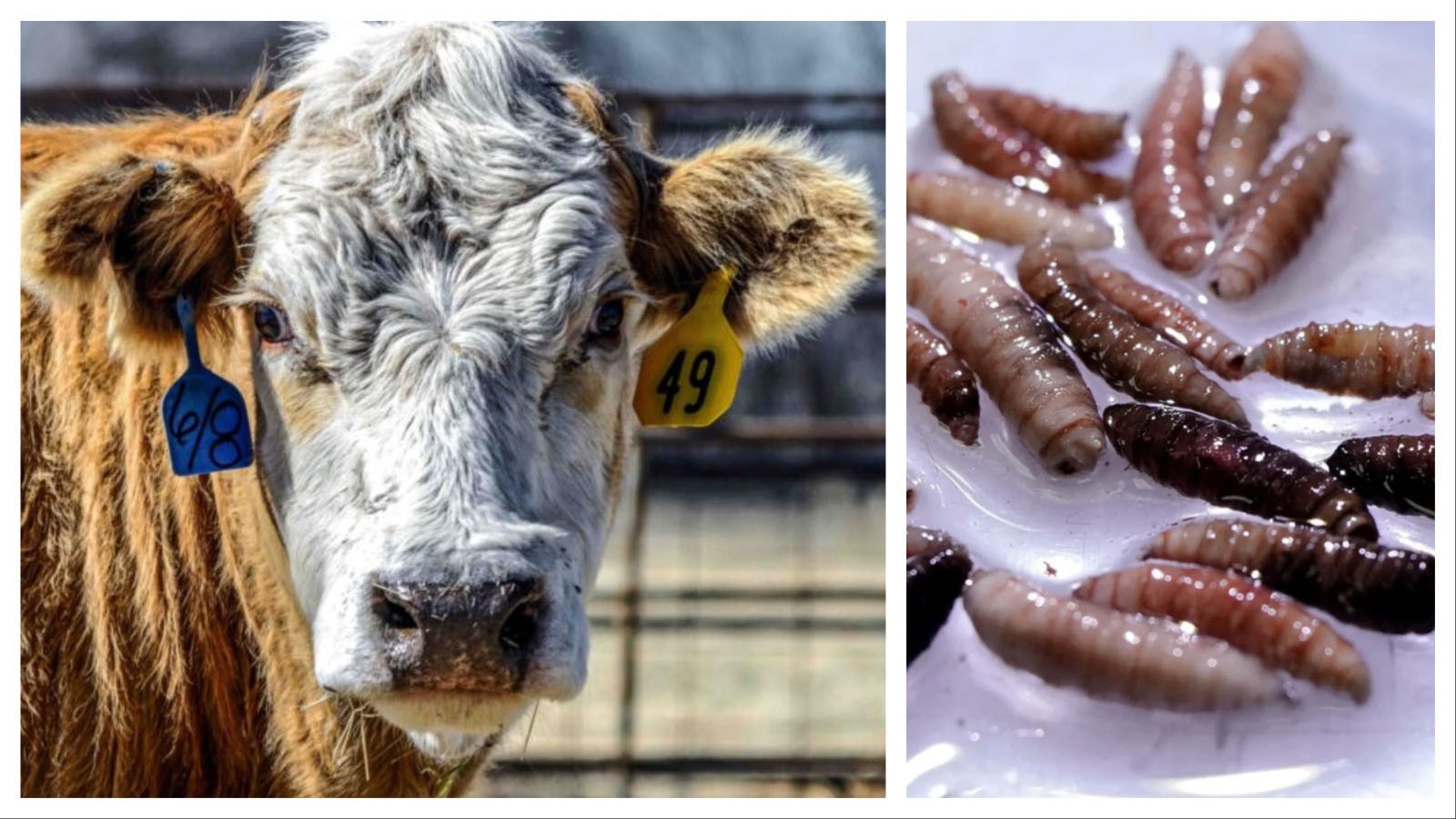Five of the 10 Albertsons stores that operate in Wyoming are on a list of stores that will be sold to C&S Wholesale Grocers as part of a proposed $25 billion merger between Krogers and Albertsons.
The list of 579 Kroger and Albertsons stores was recently disclosed online. Details include the state and street address of each store that would be sold off to C&S if the Federal Trade Commission ultimately approves the merger.
The five Wyoming stores on the list are:
• Albertsons: 1076 CY Ave., Casper
• Albertsons: 3355 E Pershing Blvd., Cheyenne
• Albertsons: 2610 South Douglas Highway, Gillette
• Albertsons: 105 Buffalo Way, Jackson
• Albertsons: 1323 Dewar Dr., Rock Springs
The FTC’s blessing is definitely not a given in this case.
The federal agency that’s in charge of ensuring adequate competition in the marketplace sued to block the merger early this year, saying the combined Kroger-Albertsons company would be too large and would lead to less competition and price hikes, in an environment where inflation is already a huge issue.
“This supermarket mega merger comes as American consumers have seen the cost of groceries rise steadily over the past few years,” FTC Bureau of Competition Director Henry Liu said in a prepared statement. “Kroger’s acquisition of Albertsons would lead to additional grocery price hikes for everyday goods, further exacerbating the financial strain consumers across the country face today.”
Liu also highlighted the difficulties the merger would pose for grocery store workers, who he said would face the threat of dwindling wages, diminishing benefits and deteriorating work conditions.
Wyoming is one of 10 states that has joined the FTC lawsuit, which is moving forward with hearings at the end of July and scheduled to go through September.
Sell-Off Meant To Preserve Competition
Kroger and Albertsons have proposed selling up to 650 stores to soothe fears that competition would be lacking in the grocery sector after they merge.
They have also contended, during Capitol Hill hearings, that there is plenty of competition from stores in other sectors that also sell groceries, like Walmart and Amazon.
“C&S is a well-capitalized industry leader in wholesale grocery supply — currently serving more than 7,500 independent supermarkets, retail chain stores and military bases — with a strong track record as a successful grocery retailer,” an unidentified Albertsons Cos. spokesperson told Cowboy State Daily on Wednesday in a prepared emailed statement.
“Their purchase of these assets — along with the associates who will transition to C&S post-close — will enable their company to be one of the leading grocery retailers in the United States, providing communities and consumers with even more choices and access to fresh affordable food options,” the statement says.
The prepared statement went on to note that C&S and Kroger have both committed to a pledge that no frontline workers will lose their jobs and that no stores will close as a result of the merger.
“Furthermore, associates will also continue to receive the competitive wages and benefits that they do today,” the statement concludes. “Maintaining their pay, health and wellness plans, and all collective bargaining agreements where they are in place.”
C&S Wholesale Grocers already has a footprint of more than 160 stores and provides grocery store services to customers of all sizes, supplying more than 100,000 products to 7,500 independent supermarkets, retail chain stores and military bases.
It, too, is no stranger to the merger process. It’s been approved as a buyer in previous grocery store mergers, and Kroger-Albertsons officials have said they are confident that this merger will be different than previous ones.

Critics Unimpressed With Sale To C&S
Critics of the planned merger have emerged across disparate political groups, ranging from unions to agricultural groups that are not so sure.
There were even hearings on Capitol Hill about the merger, with lawmakers concerned that one entity would control too much of the nation’s food supply.
UFCW Local 7, which represents about 750 Wyoming workers, has been among the most vocal of critics.
UFCW Local 7 President Kim Cordova told Cowboy State Daily that she doesn’t believe the divestiture list changes anything.
“Kroger and Albertsons have known what stores they plan to divest for months,” she told Cowboy State Daily in an email. “The last-ditch release of the list today is an underhanded attempt to influence the courts and create the perception that the mega-merger is close to final, creating more uncertainty for our members.”
The sale to C&S resembles the same sort of song and dance she’s heard many times over the years during various grocery industry mergers, and that the tune never plays out as promised.
The Safeway-Albertsons merger is a classic example of that, she previously told Cowboy State Daily.
During that 2015 merger, private equity-owned Haggen acquired a large number of stores to appease antitrust regulators that competition would be preserved.
In less than a year’s time, that company went bankrupt, and Albertsons then picked up all of the same stores that had been divested at a fraction of their original cost.
Thousands of workers lost their jobs as a result and had to start over.
Not only that, but food deserts started increasing, Cordova said. A map of USDA’s low-access, low-income food areas shows that Wyoming food deserts grew in the timeframe following that merger.
But it’s not just food, Cordova added. An increasing range of services, from fuel to pharmacies, are also going under increasingly distant grocery store umbrellas.
“We’re already suffering the high cost of inflation,” she has said in previous interviews. “And now you’re going to have just two giant behemoths in control of our whole country’s food supply chain?”
Critics of the merger have also pointed out that both Kroger and Albertsons have managed to report substantial profits, despite the inflationary period that’s straining middle-class pocket books.
Renée Jean can be reached at renee@cowboystatedaily.com.





